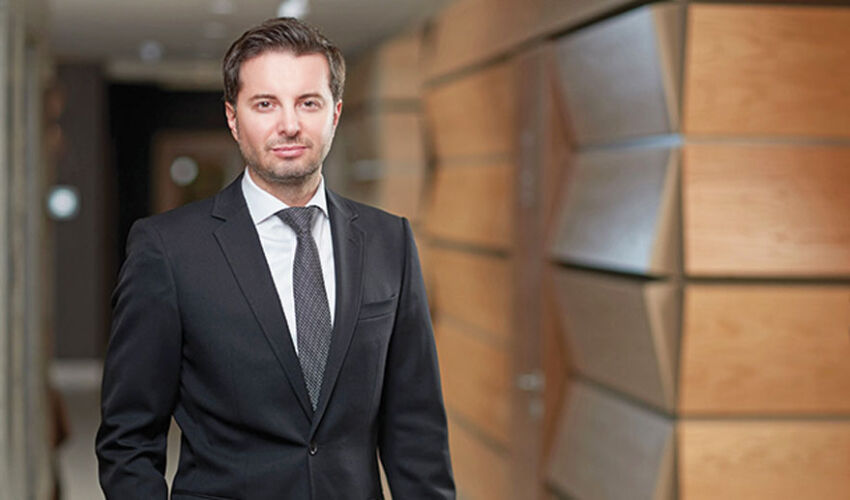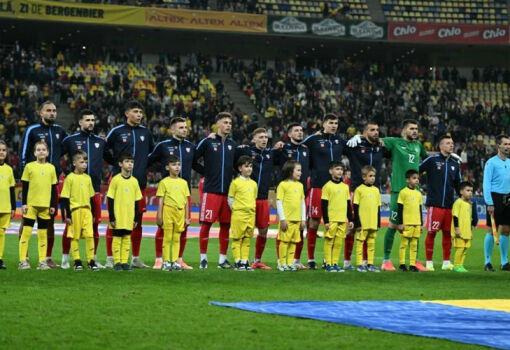
Alexander Gozun
The association has been operating since 2018 and so far covers only 10% of the local market. Its members are established companies that are more than 10-15 years old. According to Anatolie Palade, Chairman of ASAM, there is a demand for such services in Moldova, but it is mostly stimulated by the state. The market is growing due to the growth of state funds. This requires more specialists in project development. And Moldova lacks them and needs new knowledge and skills in investment implementation.
“Now we are working on their training,” Palade says. – In partnership with the Academy of Economic Studies, we have developed a course on management consulting for masters. We are discussing the development of a state program with ODA to train consultants. We are developing qualification standards for this profession. But consulting develops as business develops. And it is less active, mainly interested in attracting finance, quality management, export and marketing. To a lesser extent – business processes, although recently there has been a growing interest in digitalization. But the public sector is also more active in this sense. Demand is growing there, as funds are flowing into the country”.
Local vs international
In this field, domestic companies compete with international companies. Local firms cannot always participate in tenders because they do not meet their conditions. “Then we work as subcontractors,” continues Anatolie Palade. – To improve the quality of services, we plan to introduce certificates. We have started the process of accreditation of ASAM as a center that issues them. This will be a certain quality mark. We intend to implement the international standard ISO 20700.
According to market participants, the volume within 50 million euros is the share of local companies. Large projects are mainly implemented in Moldova by international firms. Local companies are involved in their implementation through subcontracts.
If in the field of audit, for example, the Ministry of Finance has created a structure to supervise the market, there is no such structure in the field of consulting. Therefore, at the moment there are no real figures accompanied by a deep and holistic analysis of the consulting market in Moldova, which would take into account all its areas and participants.
“In general, our consulting is not efficient enough in terms of productivity,” says Alexandru Gozun, PwC Moldova leader. – If we compare it with Romania, a consultant in Moldova can generate an annual income, which in Romania would correspond to the net profit of a similar specialist. This is a significant indicator. The Moldovan consulting market is poorly represented by highly paid expertise. Such expertise is usually imported. At the same time, there is also export of consulting services in the country, but mostly with low added value. But complex, intellectual expertise is expensive to import. This creates certain tension in terms of the presence of local companies in the market and their development potential. To overcome the imbalance between foreign companies and local ones, the market must be more active, achieve higher performance and develop the level of expertise.”
In this sense, PwC is a hybrid. “There are projects that we fully implement by the Chisinau office,” continues Alexandru Gozun. – And there are more complex ones, which require specific expertise that we have access to in the region – Romania, Czech Republic, Poland, UAE, Uzbekistan or India. But in Moldova there are international companies without local presence, a couple dozen of them on the market. They come for large international projects. However, they cannot operate on this market without partnership with local companies. They need information about the country, understanding of the realities. That is why they conclude contracts with Moldovan companies, which act as conductors of the context. And this, in turn, helps the domestic market to grow”.
He states that there is a certain growth of local competencies. “But, unfortunately, this is not the growth that would help develop the industry,” the expert explains. – This is marginal growth, as a rule, work in a particular direction”.
Development requires quality
The head of PwC Moldova specifies that such cooperation rarely gives local companies access to the entire project cycle. “It is more like participation in a certain niche, limited functionally. Competencies grow, but in a fragmented way. Local companies do not become full-fledged project holders, as the international partner pulls the maximum volume on himself – his profit depends on it. He will minimize local participation, using it only where it is critically needed. In the example of PwC Moldova, our competencies are growing because we have mixed teams. For us, as a global organization, it is not important which office earns more money – Chisinau, Bucharest or Warsaw. We work where we have the right expertise. If there is enough of it locally, there is no need to involve other offices. This is a slightly different model. But it is only applicable to companies that are already part of a transnational network. This model is hardly available to independent local players, unless they merge with large groups.
According to experts, today the consulting market is fragmented and diversified. Therefore, we need consolidation of local companies, creation of more versatile structures. This will help to expand the range of services and implement projects not on one narrow subject, but on a larger scale. At the same time, access to resources will increase due to the process of European integration, which will also affect the market and the quality of services.
Meanwhile, neither the professional community nor any state structure controls the market. For example, in Romania, having a certificate of the association of appraisers is a definite sign of quality. We do not have such standards, and this affects the trust of clients. And the situation on the market also shapes prices. Compared to the region, the cost of services of local firms is much lower than in Romania or Georgia.
“To improve the quality of services, we need to work in two directions,” says Alexander Gozun. – The first is the consolidation of players for whom reputation is important. This should lead to an increase in quality and professional ethics. The second is working with clients. We need to realize that the lowest price does not mean the best service. We often have dumping, and then the price rises as the project progresses. This undermines trust. Prices have to be reasonable – otherwise quality suffers. And this is a long-term process.
He emphasizes that in the coming years, against the backdrop of increasing access to EU funding, Moldova will increasingly depend on the ability of local companies to develop these resources. “In the new EU countries, such as Romania and Bulgaria, this process was going hard. And we have even less such competences, and they are fragmented – only in certain topics. Therefore, we need to build an approach already now – with a focus on technology, digital solutions and artificial intelligence.”



